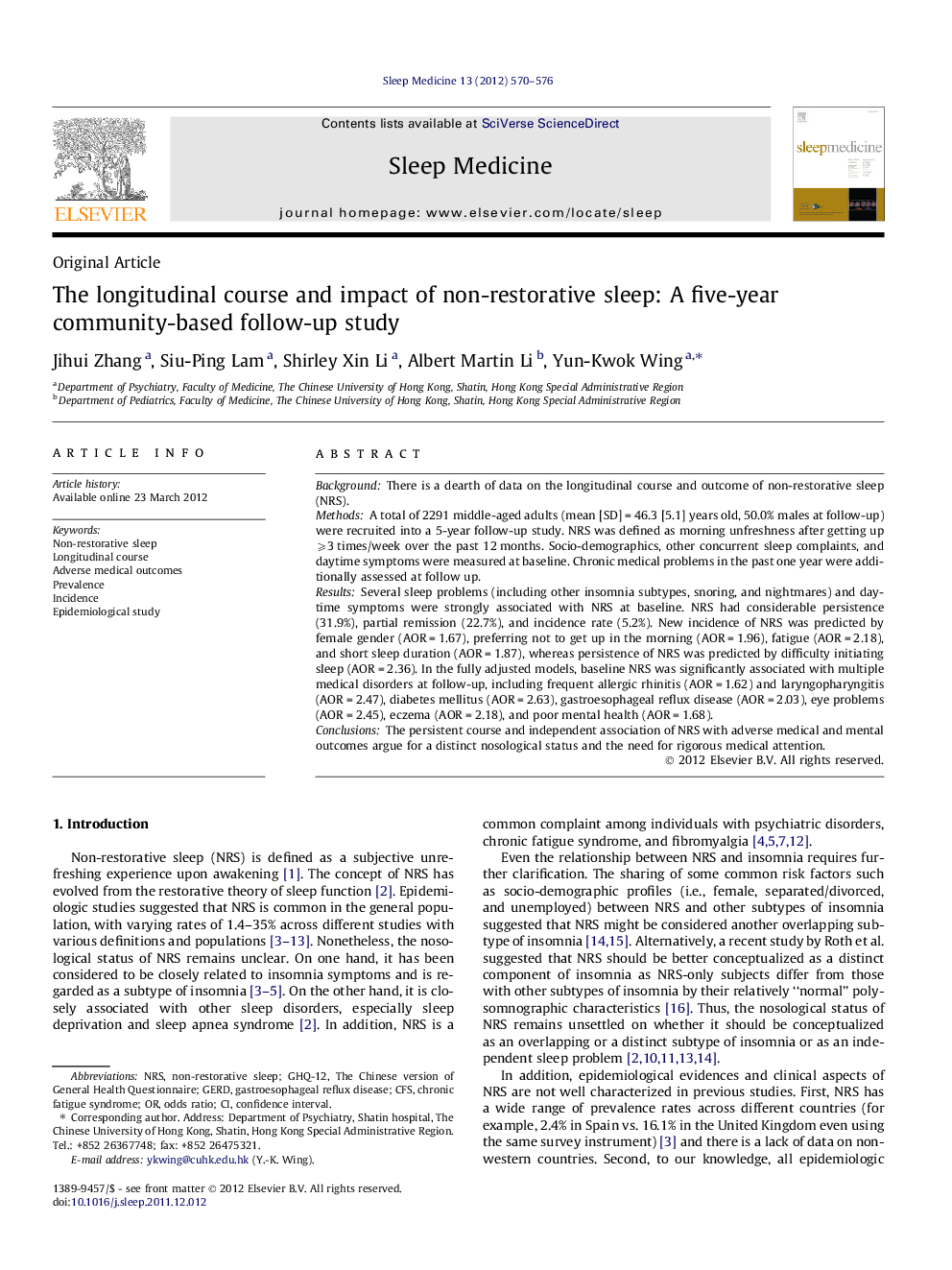| Article ID | Journal | Published Year | Pages | File Type |
|---|---|---|---|---|
| 6061203 | Sleep Medicine | 2012 | 7 Pages |
BackgroundThere is a dearth of data on the longitudinal course and outcome of non-restorative sleep (NRS).MethodsA total of 2291 middle-aged adults (mean [SD] = 46.3 [5.1] years old, 50.0% males at follow-up) were recruited into a 5-year follow-up study. NRS was defined as morning unfreshness after getting up ⩾3 times/week over the past 12 months. Socio-demographics, other concurrent sleep complaints, and daytime symptoms were measured at baseline. Chronic medical problems in the past one year were additionally assessed at follow up.ResultsSeveral sleep problems (including other insomnia subtypes, snoring, and nightmares) and daytime symptoms were strongly associated with NRS at baseline. NRS had considerable persistence (31.9%), partial remission (22.7%), and incidence rate (5.2%). New incidence of NRS was predicted by female gender (AOR = 1.67), preferring not to get up in the morning (AOR = 1.96), fatigue (AOR = 2.18), and short sleep duration (AOR = 1.87), whereas persistence of NRS was predicted by difficulty initiating sleep (AOR = 2.36). In the fully adjusted models, baseline NRS was significantly associated with multiple medical disorders at follow-up, including frequent allergic rhinitis (AOR = 1.62) and laryngopharyngitis (AOR = 2.47), diabetes mellitus (AOR = 2.63), gastroesophageal reflux disease (AOR = 2.03), eye problems (AOR = 2.45), eczema (AOR = 2.18), and poor mental health (AOR = 1.68).ConclusionsThe persistent course and independent association of NRS with adverse medical and mental outcomes argue for a distinct nosological status and the need for rigorous medical attention.
